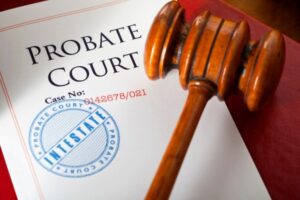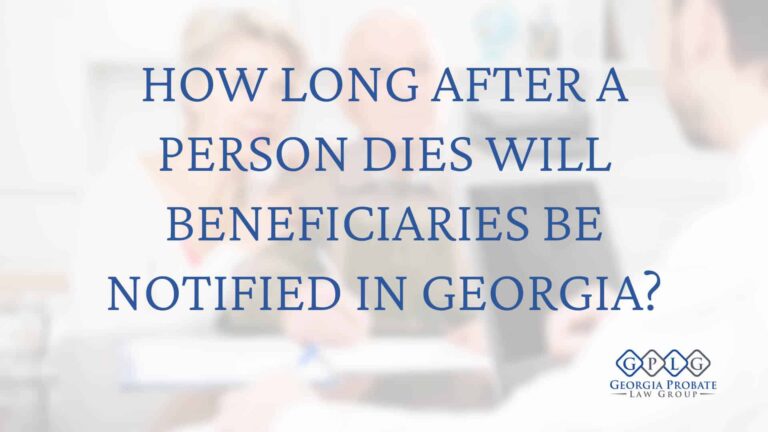When it comes to probate proceedings, each state has its own laws and regulations. After a person dies, all their assets must go through probate to be distributed to the heirs and beneficiaries. If the decedent owns properties only in the state where they reside, the estate requires only probate proceedings in that specific state. However, when the late person owns real estate located in more than one state, their estate might require ancillary probate.
You might wonder what exactly refers to this term, how it works, and how ancillary proceedings differ from primary probate proceedings.
Keep reading to find answers to your questions.
What Is Ancillary Probate?
Ancillary probate is a type of probate proceeding that takes place in addition to the primary probate process (also known as domiciliary probate). When the deceased person owns an out-of-state property, typically, an ancillary probate process is required.
The reason is that the probate court in the home state doesn’t have legal jurisdiction over the property owned by the deceased in the other states. In other words, ancillary probate is a secondary probate that supports the primary one.
Ancillary probate applies to real estate that is owned by the deceased outside of their home state. This will typically only apply to real estate that is physically attached to the land or is the land itself. The domicile probate will handle most other assets.
Ancillary probate example
Let’s say, for example, that the decedent lived in Tennessee and owned real estate in Georgia. The executor files for probate in Tennessee for the Tennessee-based property and real estate.
This is the main probate (domiciliary probate), where the court establishes the will’s validity and appoints the named executor to manage the deceased estate.
As the decedent also owns real property in Georgia, an additional process would be required to handle the real estate in Georgia.
Once the will has been validated during the primary probate proceeding, the appointed executor can file for probate also in Georgia, submitting a “properly certified copy of the will and a properly authenticated copy of the final proceedings in the jurisdiction in which the will was probated or established.”
The ancillary courts establish the rules and proceedings for admitting the wills to ancillary probate.
At that point, according to the state’s law, the estate executor may handle the decedent’s property in Georgia, pay the taxes, and transfer the asset to the named beneficiaries.
If the decedent died intestate, the non-domiciliary probate is still necessary. However, state intestacy laws will determine who will receive the property in this case.
When Is Ancillary Probate Required?
Ancillary probate might be required when someone passes away and owns a real property located outside the state where they have primary residency.
The estate executor or administrator typically discovers the need for this form of probate when gathering the deceased assets. If they find the decedent owned a property in another state, the estate personal representative would determine whether ancillary probate is necessary.
Some potential scenarios might be:
- A second home – the late person owns a vacation home in another state.
- Multi-state business interests – some people might have business interests all around the country; when they pass away, their ownership interests might be subject to probate in diverse jurisdictions.
- Investment properties – real estate is a common form of investment, and people might own properties all over the country. When the decedent had an investment property in other states, ancillary probate might be required.
How Does Ancillary Probate Work?

When a person passes away, the executor nominated in the testament is responsible for filing the deceased’s will with the probate court and opening the probate estate.
This process, also known as domiciliary probate, will almost always take place in the state where the decedent has permanent residency.
If, during the probate process, the estate administrator or executor finds out that the decedent possessed properties in other states, they will file for ancillary probate in each of these states.
To do so, the personal representatives should contact the court to open ancillary administration. During the process, the court might determine the necessity to hire a local probate lawyer.
Once the probate court has validated the will in the decedent’s home state, if there are no objections, typically, the court where the ancillary probate was open would also accept the will.
This is also true for the executor authorized to serve in the domiciliary probate unless “such person shall fail to qualify within a reasonable time after the will is admitted to ancillary probate.”
Requirements
Typically, the probate law, where the property is located, determines what happens to that asset when you pass away.
When out-of-state probate has occurred first, then the ancillary probate must be opened in the proper jurisdiction – where the deceased’s real estate is located. Some requirements are:
- In most situations, the executor should file the will for probate in the same state where the late person lived first; when the testament has been admitted or established in the domiciliary state, the deceased’s personal representative may file for ancillary probate in other states.
- If the decedent did not own any property or have any assets in the domicile state but owns real estate in a different state, it is best to speak with a probate attorney in both states to determine if probate is necessary in both or just one of the states.
- As the original decedent’s will was validated in the domiciliary state, the executor should submit a certified copy of it, along with an authenticated copy of the final probate proceedings in the home state.
Consequences
Ancillary probate typically comes with consequences for the decedent’s loved ones. These complications might include:
- Additional court and attorney fees.
- Extended probate timeframes and delays in distributing the deceased’s assets.
- Potential problems and disputes between the deceased’s family members.
- Complications caused by differences between the estate laws in the different states.
We advise hiring an experienced probate lawyer to help you navigate these situations.
How Does This Type of Probate Differ from Normal Probate?
The main difference between ancillary probate and primary probate is the location. While the domiciliary probate takes place where the deceased has their primary residence, the ancillary probate will be opened in the states where the late person owns real estate.
Some other significant differences are:
- Scope: the normal probate covers all aspects of the decedent’s estate, while ancillary considers only the property located in ancillary jurisdiction.
- Legal proceedings: primary probate will often involve all the steps of the probate process: validating the will, settling debts, paying taxes, and distributing the remaining decedent’s assets to the heirs and beneficiaries. Ancillary probate focuses specifically on out-of-state property and may include some but not all of the steps that are required in the primary probate process, depending on the ancillary state’s requirements.
How to File Ancillary Probate in Georgia?

- Open the domiciliary probate process, if necessary: file the will for probate in the state where the late person had primary residency. If the decedent did not own any assets or have any debts in the domicile state, then it is recommended to speak with a probate attorney in that state to better understand if probate will be required.
- File a petition for an ancillary proceeding with the Probate Court. It is best to speak to an experienced attorney regarding which specific petition is best for your ancillary probate situation.
- Submit the necessary documents: Submit a certified copy of the will along with an authenticated copy of the final probate proceedings in the home state. Additionally, there will be other specific documentation that the court may require that you provide.
- Court review and ancillary letters: The court reviews the documents and issues ancillary letters, testamentary or ancillary letters of administration, to the personal representative to authorize the executor to collect estate assets, settle debts, and distribute assets to beneficiaries
How Long Does Ancillary Probate Take?
The timeframe for an ancillary probate can vary, but typically can take 6-12 months in Georgia.
However, it depends on the estate’s complexity and value and the probate proceedings requested by the estate law in the ancillary jurisdiction.
While smaller estates might shorten the process, the complexity of the probate laws could influence the timeline.
We recommend you hire an experienced probate attorney to help you navigate through the complexity of these situations.
How to Avoid Ancillary Probate?
Here are a few examples of potential options that may be helpful in Georgia to attempt to avoid ancillary probate:
- Owning a joint property – if you have, for example, a joint tenancy with right of survivorship (JTWROS), the share of the property belonging to the deceased person will pass directly to the surviving owner.
- Transfer–on-death deeds (TODD) – these documents allow you to specify who will inherit your property after your death. Unlike joint ownership, TODDs allow you to keep ownership of the property during your life and become effective upon your death.
- Transferring the property into a revocable trust– transferring the title of the out-of-state property into a revocable trust means that the trust becomes the property owner. The trust becomes irrevocable upon your death or when you become incapacitated. After you pass away, the successor trustee will transfer the property title to the trust beneficiary/ies without going through the ancillary probate.
We highly recommend speaking with an attorney before initiating any of these potential options, as there may be specific benefits or consequences in your situation that you should be aware of.
Hire an Experienced Probate Lawyer
Understanding the differences between domiciliary probate and ancillary probate is essential in today’s world, where people may own properties in multiple states.
Hiring an experienced probate attorney can help you navigate the specific requirements of each type of probate and the complexities of estate laws in each state, taking the burden off your shoulders. If you need clarity from a probate lawyer, contact our office at (770) 796-4582 to speak with one of our team members or schedule a consultation.
More information
Disclaimer These websites have not been reviewed by Georgia Probate Law Group and are not endorsed or even recommended by Georgia Probate Law Group. These websites are additional resources that you can use to further your general education on this topic.
Disclaimer: The information above is provided for general information only and should not be considered legal advice. Our probate attorneys provide legal advice to our clients after talking about the specific circumstances of the client’s situation. Our law firm cannot give you legal advice unless we understand your situation by talking with you. Please contact our law office to receive specific information about your situation.



























